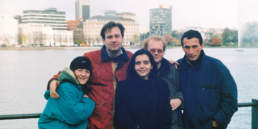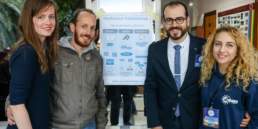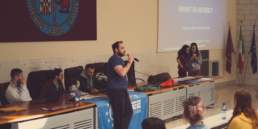Veronika Chmelárová is very young, but she has already experienced a lot of thing in the association, such as Local Board and Home-based CD assistant. Among her tasks, she is also a member of the Juridical Commission (JC) for the term 2017-2018. After successfully running in Enschede, the 20-year old AEGEE-Berlin member is ready to run for a second term during Spring Agora Krakow. Check her interview.
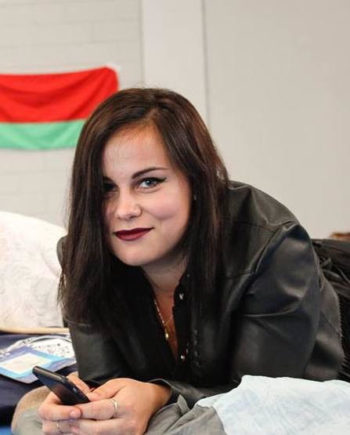 Firdevs Çazım: President of AEGEE-Berlin, member of JC, Home-based Assistant of the Comité Directeur, and be so young… Aything else we dont know about you?
Firdevs Çazım: President of AEGEE-Berlin, member of JC, Home-based Assistant of the Comité Directeur, and be so young… Aything else we dont know about you?
Veronika Chmelárová: I believe, when it comes to my AEGEE CV, you know it all from my candidature. I joined AEGEE when I was 18, just started my law studies and was full of ambition, so it came very natural to me to become active and take up positions. Once you start taking tasks on European level, you are involved in every second thing that is going on. Something people don’t know about me might be that I used to be a piano player when I was younger and I was in general a very artistic person; I was even accepted to a conservatory to study classical arts. I didn’t pursue this path as you can see, but studying history of art used to be my plan B.
How did the past year in the JC help you develop and what do you think can still be improved?
In general JC did teach me a lot, already in my Subcom time. It gives you a huge overview of the Network and consequently to people’s thoughts. You get to work with people from different backgrounds, nationalities, a very diverse group, and with each of them you try to reach an agreement if possible or solve the situation in the least painful way. And although people think law is boring, it is a lot about creativity. Sometimes proposers come to us earlier before Agora, just with an idea they have and we try to find a proper formulation and placing for them, polish the details and in general, make our best to bring their idea onto the paper. So, in short, it taught me patience, taught me how to work in a very international legal environment and taught me a lot about our Network.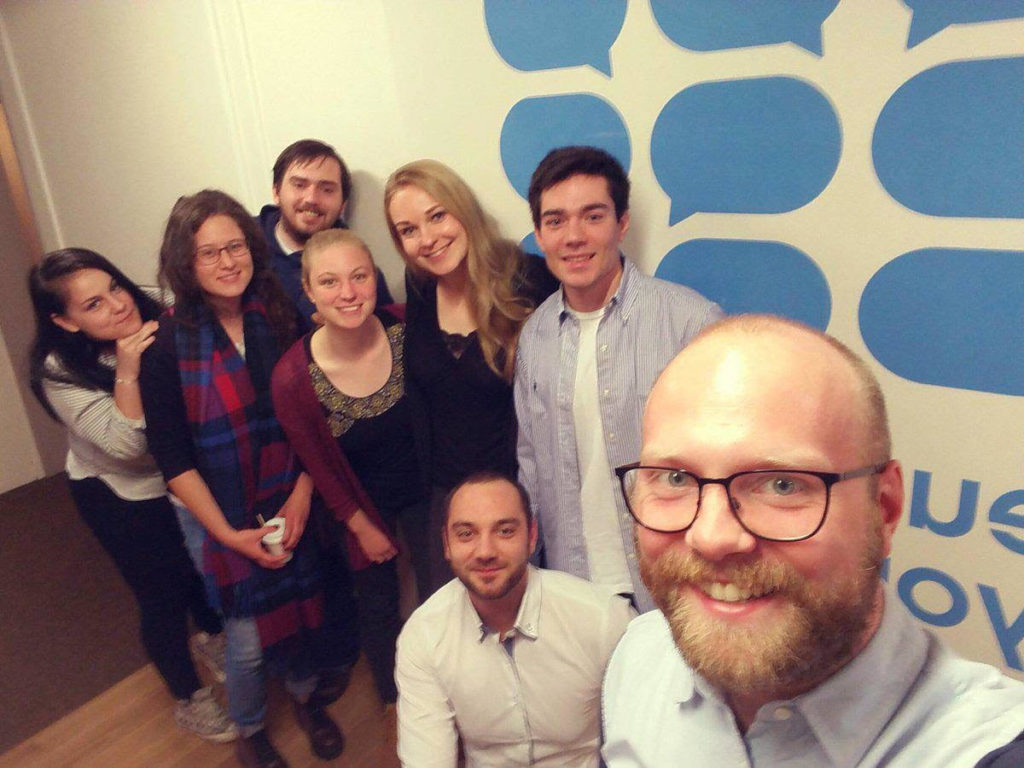
What was the first change in the legal system of AEGEE you did?
It is hard to say what was the first change I did in AEGEE. Or if I even did change something for that matter. If I did, I believe it was not only my achievement, but when talking about legal matters, the achievement of our whole JC team. And I was lucky to get a good one. I like to believe that every initiative we take to make AEGEE better, more transparent or even just to make one persons live easier or different in a good way, is a relevant change. So, you already mentioned the Agora Mentorship, which is a project close to my heart, where we are trying to prepare the attendees of the Agora, so that they also know what they are voting for or even what we are talking about, and can actively participate in the Agora. It can increase their confidence, the intensity of the experience and on the end, it might make them want to run for a position or be active. There are of course plenty of examples like this. Therefore if anyone would like to know more, just ask me personally, or the whole JC during Agora.
Considering the new regulation regarding the member of JC appointed to MedCom, would you like to take up this task? If yes, what is your relevant experience in conflict resolution and mediation?
I can say that I am open to this option, as Mediation Commission does a very interesting and meaningful work, but this is also something that we will have to decide upon with the new team and MedCom together. If I would take this position, I would keep my status of the JC appointed person and be the legal advisor, who analyses the conflicts from this point of view. Relevant conflict resolution experience is the whole JC year, as we also have to prevent or resolve conflicts, of course, mostly of different nature than MedCom. Mediation is not really my field of expertise, since I focus on EU law, but I am a fast learner.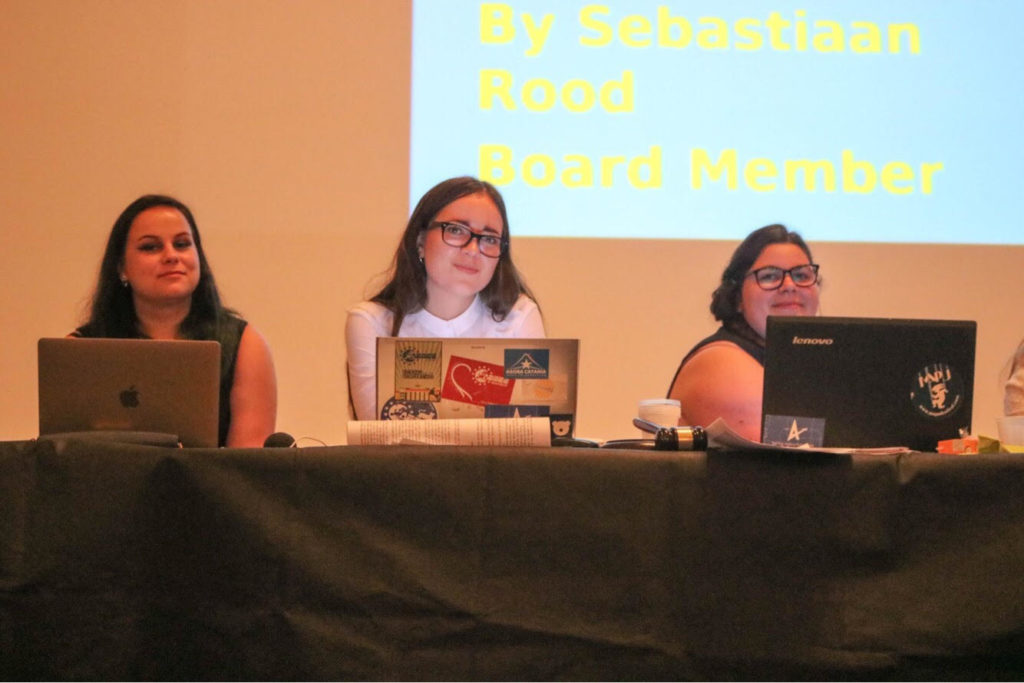
In your candidature you are speaking about the JC database and the callenge in having all the statutes. Can you elaborate a bit and tell us what are your ideas in improving the situation?
Indeed, I mention this issue as we are currently in the process of solving it. To elaborate, every Local is obliged to send their statutes upon any modification or request to us for approval. This rule has not been followed in most of the cases. Which means, most of the statutes we have, if any, are outdated. This does not give us a lot of space for air when it comes to problems with Locals, or questions from them to the interpretation of their statutes. Right now, we are slowly collecting the statutes via email and are archiving everything we approve. This is not really feasible as we have enough work not to be able to check the list of Locals all the time and write emails to each and every single one of them, then follow the process of correction if there are some errors, which can take weeks, as the Boards also are busy. So, the future planned solution is Podio and switching to it completely. We do have one together with the Network Commission, so that they also see if the criterion is not fulfilled. Also, once we have the statutes, we already have to start updating the archives again, so I would like to develop a system for the timing of requests for the statutes, automatize it, not only for us, but also for the Locals.
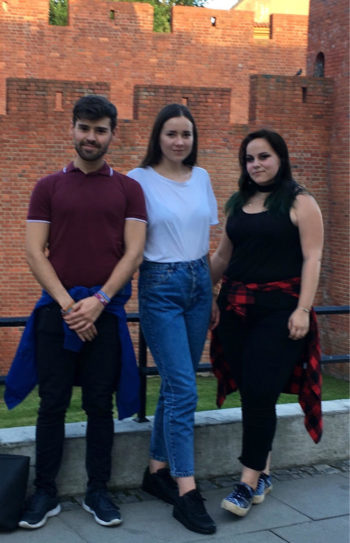 Why should people vote for you?
Why should people vote for you?
The answer to this question cuts a third of my Agora presentation, so you just spared us some time there. Since I already spent one year in the JC as a Subcommissioner and am almost at the end of my term as a Commissioner, I am already experienced, I know how the Commission works and all the initiatives we have in running, therefore my need of a knowledge transfer is minimal. Everyone who knows me personally and always hears me talking about the CIA also knows that I am very passionate about it, know the document very well and enjoy the work we do, which is, of course, a huge asset in JC. Although I am very positive about our work this year, I also see a space to develop and have a vision of how to improve our actions and ways, to not only make us more efficient, but to also give us the opportunity of a more direct contact with the members.
Written by Firdevs Çazım, AEGEE-Hatay
You can read her full candidature here.
Check the interviews of the other candidates for Juridical Commission: Lisette Kunst, AEGEE-Groningen, and Giuseppe Aquilino, AEGEE-Catania.

